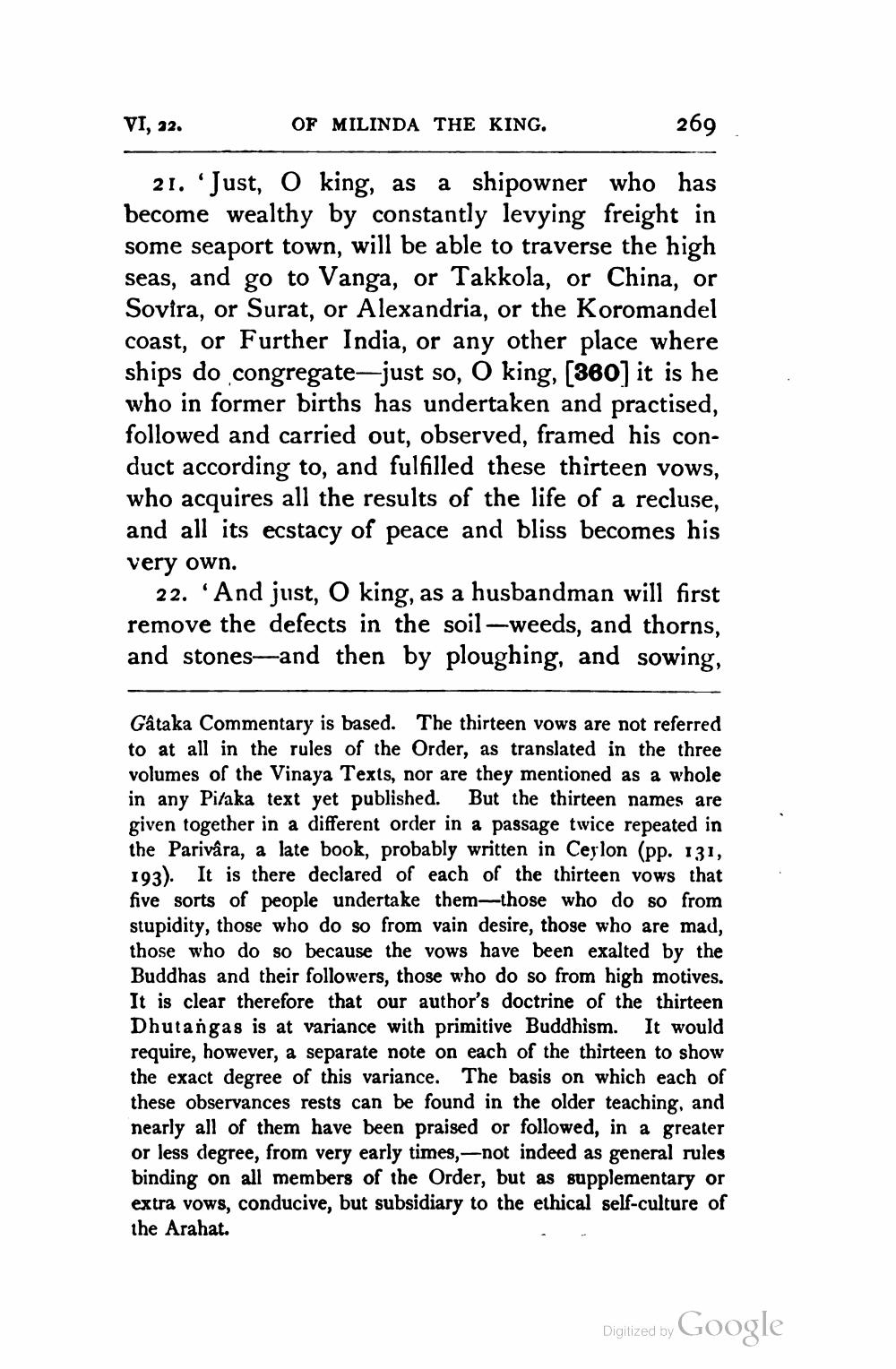________________
VI, 22.
269
21. Just, O king, as a shipowner who has become wealthy by constantly levying freight in some seaport town, will be able to traverse the high seas, and go to Vanga, or Takkola, or China, or Sovira, or Surat, or Alexandria, or the Koromandel coast, or Further India, or any other place where ships do congregate-just so, O king, [360] it is he who in former births has undertaken and practised, followed and carried out, observed, framed his conduct according to, and fulfilled these thirteen vows, who acquires all the results of the life of a recluse, and all its ecstacy of peace and bliss becomes his
very own.
22. And just, O king, as a husbandman will first remove the defects in the soil-weeds, and thorns, and stones-and then by ploughing, and sowing,
OF MILINDA THE KING.
Gâtaka Commentary is based. The thirteen vows are not referred to at all in the rules of the Order, as translated in the three volumes of the Vinaya Texts, nor are they mentioned as a whole in any Pitaka text yet published. But the thirteen names are given together in a different order in a passage twice repeated in the Parivâra, a late book, probably written in Ceylon (pp. 131, 193). It is there declared of each of the thirteen vows that five sorts of people undertake them-those who do so from stupidity, those who do so from vain desire, those who are mad, those who do so because the vows have been exalted by the Buddhas and their followers, those who do so from high motives. It is clear therefore that our author's doctrine of the thirteen Dhutangas is at variance with primitive Buddhism. It would require, however, a separate note on each of the thirteen to show the exact degree of this variance. The basis on which each of these observances rests can be found in the older teaching, and nearly all of them have been praised or followed, in a greater or less degree, from very early times,-not indeed as general rules binding on all members of the Order, but as supplementary or extra vows, conducive, but subsidiary to the ethical self-culture of the Arahat.
Digitized by
Google




